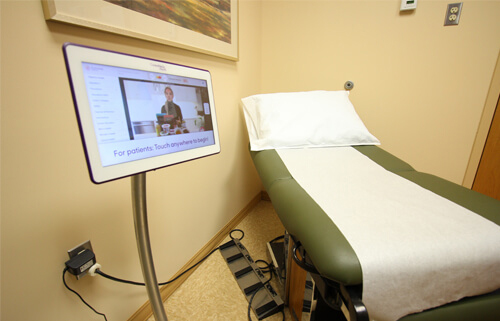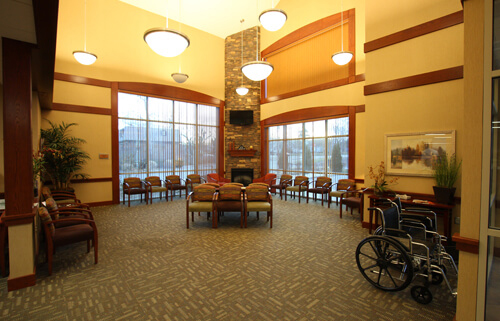There are a series of breath tests doctors use to diagnose a variety of gastrointestinal conditions. These breath tests include:
- Bacterial Overgrowth Breath Test
- Fructose Breath Test
- Pylori Breath Test
- Lactose Breath Test
Bacterial Overgrowth Breath Test
The bacterial overgrowth breath test is used to determine if a large amount of bacteria are growing in the small intestines. When this occurs, it impacts the body’s ability to absorb nutrients.
Preparing for the Bacterial Overgrowth Breath Test
- Limit the amount of slowly digesting foods, like beans, bran, pasta, high fiber breads or other high fiber cereals the day before testing.
- You should fast for 12 hours before the test, with only water to drink.
- Do not smoke, sleep, or exercise vigorously for at least 30 minutes before, or at any time during the testing.
- Do not brush your teeth, gargle with mouthwash, chew gum or eat any mints the morning of the test.
- Discontinue any probiotics two weeks prior to testing.
- If you have been on antibiotic therapy in the 48 hours before the test, you will need to reschedule.
- You may have water prior to test. Once the test has begun, you cannot eat or drink anything by mouth.
What Happens During the Bacterial Overgrowth Breath Test?
You will be asked to breathe into a small machine. Then, you will drink a solution of lactulose. This solution may cause diarrhea or abdominal pain in some patients. After a period of 90 minutes, where you are allowed to leave the office, you will be asked to breathe again. You will then wait another 30 minutes and breathe once more.
Fructose Breath Test
The fructose breath test is used to evaluate the presence of fructose malabsorption, a condition that is a leading cause of bloating, cramping and diarrhea.
Preparing for a Fructose Breath Test
- Do not eat any slowly digesting foods, like beans, bran, or other high fiber cereals the day before testing.
- You should fast for 12 hours before the test, with no food and only water to drink before testing.
- Do not smoke, sleep, or exercise vigorously for at least 30 minutes before, or at any time during the testing.
- Do not brush your teeth, chew gum or eat mints before the test.
- Hold off on taking any medications before the testing.
- If you have been on any recent antibiotic therapy and/or if you have had recent or current bouts of diarrhea please let your physician aware of such conditions, as they can affect the test.
What Happens During a Fructose Breath Test?
You will need to drink a 12-ounce can of Coca Cola three hours before going to your appointment. It has to be regular Coke, not diet, not caffeine-free and no Pepsi or generic brands. You will be asked to blow into an instrument, and your breath will be analyzed for hydrogen gas. Your breath test results will be obtained every 30 minutes for three hours.
Pylori Breath Test
The H. Pylori Breath Test is a procedure performed by gastroenterologists to detect bacteria called helicobacter pylori (commonly referred to as H Pylori). H. pylori can be found in the stomach or small intestine, and can cause gastrointestinal diseases as well as increase the risk of gastric cancer. Gastritis, an inflammation of the stomach lining, and gastric ulcers are two conditions associated with H. pylori.
Preparing for a H. Pylori Breath Test
- Discontinue all PPI Medication as this can give a false reading on the H. pylori breath test. These medications include Omeprazole, Prilosec OTC, Prevacid, Protonix, Aciphex, Dexilant and Nexium. You may continue taking Zantac, Tums, Maalox or Mylanta.
- Stop taking any Pepto-Bismol, Carafate or Sucralfate.
- Stop taking any antibiotics two weeks prior to the test. If you have not stopped these medications two weeks prior to the h pylori breath test, you will need to reschedule your test.
- You will need to fast one hour before the test.
What Happens During a H. Pylori Breath Test?
You will be asked to breathe into one of the breath collection bags and drink a solution of Pranactin-Citric. Notify your physician if you are allergic to the protein phenylalanine as the Pranactin-Citric solution contains this. After 15 minutes, you will be asked to breathe into the second breath collection bags. You will receive your results within 24 to 72 hours after taking this test.
Lactose Breath Test
The lactose breath test is a procedure administered to a patient to diagnose lactose intolerance, which is an inability to digest lactose, a sugar found in milk. Common symptoms of lactose intolerance include cramping, bloating, gas or diarrhea after dairy products have been consumed.
Preparing for a Lactose Breath Test
- Do not eat any slowly digesting foods, like beans, bran or other high fiber cereals the day before testing.
- You will need to fast for 12 hours before the test, with no food and only water to drink before testing.
- Do not brush your teeth the morning of the test.Do not chew gum, eat candy or mints the morning of the test.
- Do not smoke, sleep, or exercise vigorously for at least a half hour before, or at any time during the testing.
- If you have been on any recent antibiotic therapy, you need to be off of them for two weeks before doing the test.
- Let your physician know if you have had recent or current bouts of diarrhea, as this can affect the test.
- Drink 12 ounces of skim or fat-free milk three hours before going to your appointment. It is important that you wait three hours prior to the breath test for the milk to digest, otherwise you may receive false readings.
What Happens During the Lactose Breath Test?
You will be asked to drink a lactose-containing beverage, which may cause cramping, bloating, gas or diarrhea. Fifteen minutes after drinking the beverage, you will blow into balloon-like bags every 15 minutes for two hours. The air you breathe into these bags is tested for the presence of hydrogen. Elevated hydrogen breath levels indicate the improper digestion of lactose, which could lead to lactose intolerance or the presence of abnormal bacteria in the colon.





